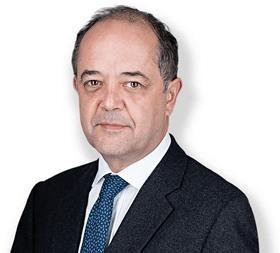The chair of the bar has called for a shake up of the system which he says ‘cruelly disappoints’ almost half of those who aspire to become barristers but fail to obtain pupillage. In an article to be published by the bar’s official publication tomorrow, Nick Vineall KC calls for aspiring barristers to be allowed to use the title only on completion of pupillage, so that the title barrister ‘really means something again’.
Vineall’s intervention comes as a report from the Bar Standards Board shows the dismal prospects for bar course grads hoping to obtain pupillage. The annual survey of training providers shows that UK students with a 2:2 degree have a less than one in four chance of ever progressing to pupillage. Even of those who achieve a first in the Bar Course only 60% eventually secure a pupillage.
In an article for Counsel Magazine, co-authored with Fallon Alexis, vice-chair of the Bar Council’s education and training committee, Vineall points out that for every barrister with a practising certificate there are two who have never been entitled to a PC. Of all the people in the world entitled to say they are barrister called to the Bar of England and Wales, only one in four has a PC.

‘This all creates confusion both for barristers and for the public’, the authors write. ‘A frequent subject of enquiries to the Bar Council’s ethical enquiries helpline is what unregistered barristers providing legal services can and cannot say or do.
‘If barristers don’t understand the confusing rules there is no chance that the public will. It also means that the practising bar has to fund the (ever-more-expensive) BSB which then has to regulate all 70,000+ barristers at the expense of the 17,000. The only way to solve these problems in the long run is to defer call until after pupillage has been obtained, so that the title barrister really means something again.’
Vineall and Alexis argue that the title of barrister should be conferred only on people able to practice. They add: ‘If that leads to a reduction in the number of young people taking the bar course, it will mean fewer people who have little chance of practice wasting their money, and it will also allow the Inns to focus their finite resources on those most in need of support. That will be good for diversity and for social mobility
‘What is needed is focused and sustained support on promising individuals, as opposed to a system which indiscriminately allows almost everyone into the first stage (the bar course) and then at the next stage (pupillage) cruelly disappoints almost half of those whom we have encouraged to embark on an expensive course, which we are no longer able to restrict to those with a reasonable prospect of success at the bar.’
Meanwhile, the Bar Standards Board’s latest training survey indicates strikingly low success rates at some institutions offering the Bar Course.
Towards the bottom of the league table - in terms of the overall pass rate of their students entered for the criminal litigation exam - were ULaw Liverpool with 64 per cent of 76 students eventually passing; UWE with 69 per cent of 393 students passing and MMU with 70 per cent of 70 students passing.
The University of Hertfordshire was a ‘notable outlier’, with an overall pass rate of just 29 per cent of just 17 candidates entered. It is currently ’suspended from delivery’, the report states, meaning the university had to defer its next bar course intake to January 2024.



























21 Readers' comments